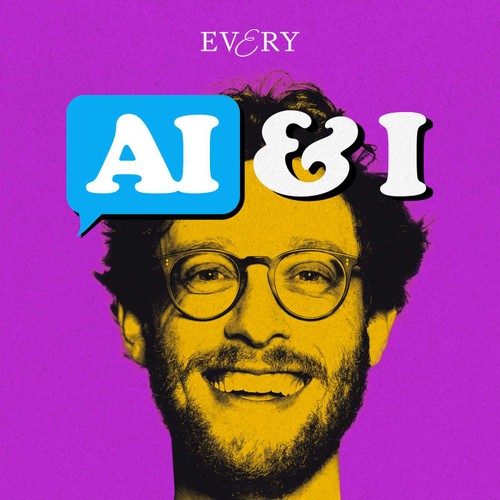
 AI & I
AI & I Using ChatGPT for Writing and Recommending Books - Ep. 2 with Nat Eliason
Finding Similar Authors
- Use ChatGPT to find authors similar to your favorite writers.
- Specify criteria like genre, themes, and contemporary relevance.
Discovering "This Machine Hood"
- Nat Eliason discovered the book "This Machine Hood" through ChatGPT's recommendations.
- He highlighted its intriguing premise and endorsements from reputable figures.
Refining Recommendations
- Refine book recommendations by specifying niche criteria.
- ChatGPT effectively filters numerous lists to match your unique taste.
























































How Nat Eliason uses ChatGPT to write books: Nat Eliason is a shape-shifter. He’s a writer with a book deal from Random House, a crypto trader, a Roam Research aficionado, a marketer, a book podcaster, a parent, and a seed oil iconoclast. He's amassed thousands of newsletter subscribers, 70,000 followers on X, and 110,000 on TikTok. His secret weapon for all of his exploring? ChatGPT. Nat took me through why he uses it every day for his work and his life. In this interview we talk about using ChatGPT for: Identifying his taste in writing. He uses ChatGPT to help him identify the kind of writing he likes, so that he can produce more of it. Finding new books to read for inspiration. ChatGPT helps him find writers and books that he never would've encountered through Googling or in his daily life. Generating story outlines and character descriptions. He uses ChatGPT to help him outline the sci-fi novel he's writing and learn how to create vivid descriptions. Settling bar bets. Air in the atmosphere contains carbon—which can technically be converted into diamond. So, how much air would be required to make a diamond? It's the kind of thing you might argue about over drinks with a friend—and exactly the kind of question ChatGPT is built to answer. Reading the news. Nat doesn't read the news. But every once in a while he wants to know what's going on about a particular topic. ChatGPT is the perfect news summarizer. Generating recipes. Nat is a frequent chef. ChatGPT is his recipe companion: surfacing ideas, and easily modifying them based on what he has at hand and his family's dietary preferences.

